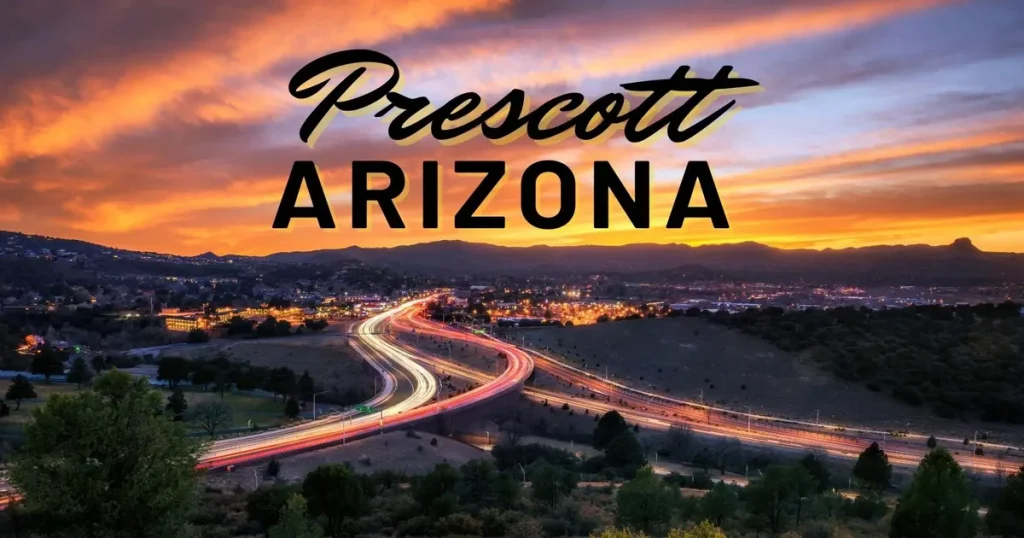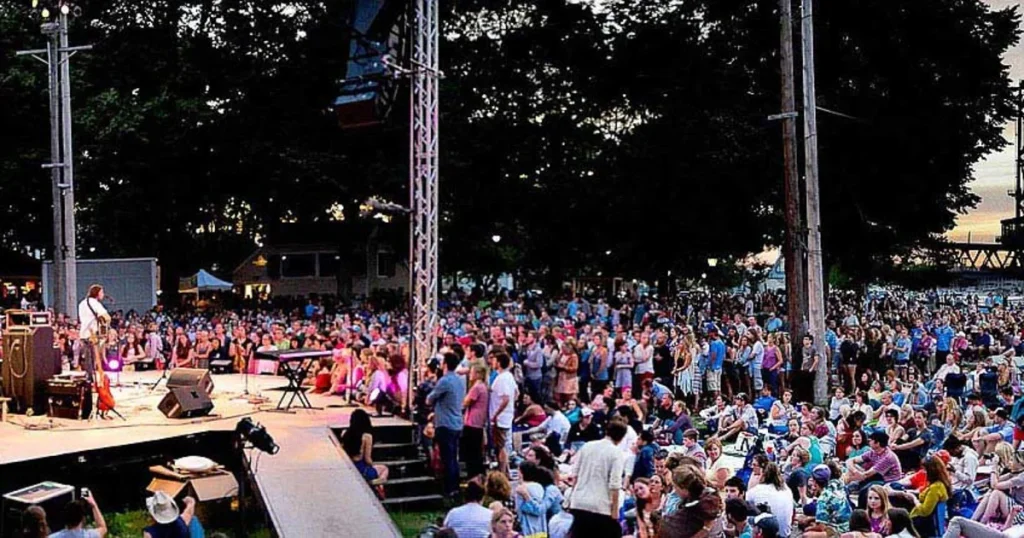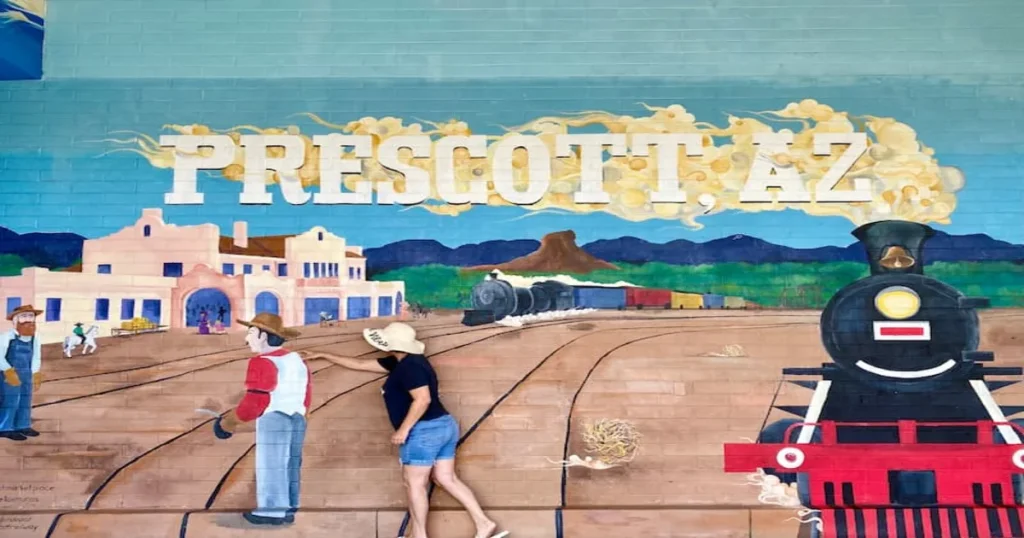Prescott, a city renowned for its vibrant cultural tapestry, has always leaned on its economic prowess to uplift and enhance its local cultural events. Over the years, it’s evident that Prescott’s economic role in supporting local cultural events has transformed from a mere benefactor to a symbiotic partnership.

This interweaving of culture and commerce has not only fortified Prescott’s economic stature but has also elevated the city’s cultural offerings, bringing it into the limelight for tourists and residents alike.
Prescott’s Economic Evolution
The roots of Prescott’s economic journey can be traced back to its foundational industries. Mining, agriculture, and trading once dominated the city’s economic landscape, providing a stable, albeit traditional, framework.
As time progressed, so did the economic paradigms. The transition wasn’t merely monetary. It was a metamorphosis that paved the way for cultural innovations, an aspect of Prescott that we celebrate today.
The emergence
Direct Economic Contributions to Cultural Events
Municipal budgets, historically seen as dry financial documents, reveal a lot about a city’s priorities. In the case of Prescott, a significant portion of this budget allocated to cultural activities showcases the city’s commitment to its cultural heartbeat. These funds often cater to logistics, promotions, and even grants for budding artists.
Local businesses have forever been the unsung heroes of this cultural-economic relationship. Sponsoring events, providing venues, or even offering discounts during cultural festivals, these entities act as the backbone of Prescott’s cultural showcase. The relationship is quite symbiotic. While events get the necessary funding, businesses benefit from increased footfalls and a fortified brand image.
Tourism, as an industry, thrives on experiences. Cultural events, brimming with local flavors and stories, naturally become tourist magnets. The revenues generated from this influx find their way back into the local economy, thereby creating a sustainable cycle.
Tourists not only contribute to hotel bookings and dining but also buy local crafts, souvenirs, and art, pumping money directly into the cultural ecosystem.

of cultural events came as a refreshing wave. The early 20th century witnessed a surge in local gatherings, festivals, and artistic endeavors, all hinting at the cultural richness brewing underneath. This wasn’t a mere coincidence; the economy’s upswing provided the much-needed impetus to these nascent cultural experiments.
Indirect Economic Stimuli & Their Role
Real estate and infrastructure often reflect a city’s growth trajectory. With Prescott’s cultural calendar buzzing, it’s no surprise that there’s been a steady rise in infrastructure projects aimed at hosting these events. New venues, amphitheaters, and even roads can be seen as economic responses to cultural demands.
The blossoming of ancillary industries paints a broader picture of economic stimuli. Take food and hospitality, for instance. Local events drive the demand for thematic eateries, pop-up stalls, and even culturally curated menus. On the other hand, the logistics sector, responsible for moving artists, equipment, and props, experiences a boom during major cultural fests.
Employment narratives in Prescott have always been intertwined with cultural events. From stage designers to local artisans, these events are more than just spectacles; they’re avenues of livelihood, a testament to the indirect economic roles they play.
Challenges and Economic Risks
Every coin has two sides. While the synergies between economic and cultural realms have largely been beneficial, there exist potential pitfalls. An over-reliance on a particular economic sector, say tourism, can jeopardize the consistent funding needed for cultural events, especially during unforeseen challenges like global pandemics.
Economic downturns, while universal in nature, can disproportionately affect cultural events. These usually fall under non-essential expenditures in municipal budgets, making them susceptible to cuts during economic crunches.
The rise of neighboring regions as cultural hubs can pose a competitive threat. Diversification of cultural offerings and strategic economic planning becomes imperative in such scenarios.
Challenges and Economic Risks
Every coin has two sides. While the synergies between economic and cultural realms have largely been beneficial, there exist potential pitfalls. An over-reliance on a particular economic sector, say tourism, can jeopardize the consistent funding needed for cultural events, especially during unforeseen challenges like global pandemics.

Economic downturns, while universal in nature, can disproportionately affect cultural events. These usually fall under non-essential expenditures in municipal budgets, making them susceptible to cuts during economic crunches.
The rise of neighboring regions as cultural hubs can pose a competitive threat. Diversification of cultural offerings and strategic economic planning becomes imperative in such scenarios.
Case Studies: Iconic Cultural Events in Prescott
One can’t talk about Prescott without mentioning the Frontier Days. This iconic event, which celebrates Prescott’s rich history, also has significant economic underpinnings. From drawing tourists nationwide to boosting local businesses, its impact is multifaceted.
The Prescott Film Festival is another exemplar of the confluence of art and commerce. Over the years, the festival has not only showcased cinematic brilliance but also played a pivotal role in the city’s economic tapestry, attracting film enthusiasts and industry professionals alike.
Art walks in Prescott offer a melange of local artistry and commerce. Galleries often report higher sales during these events, and the footfall significantly benefits nearby businesses, creating a virtuous cycle of economic and cultural growth.
Long-term Economic Strategies & Cultural Event Planning
Sustainability is the buzzword in modern planning, and Prescott is no exception. Embracing sustainable practices, both in economic strategies and event planning, ensures longevity and relevance.
Diversifying revenue streams is paramount. While ticket sales, sponsorships, and grants are traditional revenue avenues, exploring newer models like crowd-funding can amplify financial inflows. Community involvement, a hallmark of Prescott’s ethos, can further be leveraged to gather not just funds but also ideas, keeping the cultural scene vibrant and relevant.
Economic Forecasts & Future Implications for Cultural Events
The trajectory of Prescott’s economy, according to economic forecasts, indicates steady growth. This bodes well for the cultural fabric of the city, ensuring continued support and evolution.

Global economic scenarios, ever-changing, necessitate adaptability. This adaptability doesn’t just pertain to financial strategies but also to the nature and format of cultural events. Hybrid models, virtual engagements, and localized events might become the norm, and Prescott seems poised to embrace these changes.
Frequently Asked Questions: Prescott’s Economic Role in Supporting Local Cultural Events
How does Prescott compare to neighboring cities in terms of cultural event funding?
Compared to its peers, Prescott has consistently allocated a higher percentage of its budget towards cultural endeavours, signalling its commitment.
What is the average economic return on investment for major cultural events in Prescott?
While the exact ROI can vary, events like the Frontier Days often see returns in multiple folds, considering direct revenues and peripheral economic boosts.
How can local businesses benefit more from cultural events?
Strategic partnerships, co-hosting events, and offering event-specific promotions can amplify benefits for local businesses.
Are there economic incentives for new cultural event organizers in Prescott?
Yes, the local administration often offers grants, venue subsidies, and logistical support to promote new and innovative cultural events.
How does Prescott ensure the sustainability of cultural events amidst economic challenges?
Diversification of revenue sources, community involvement, and strategic collaborations are key strategies employed.
Conclusion
Prescott stands as a testament to the harmonious marriage of culture and commerce. Its economic strategies, moulded around its cultural jewels, have created a thriving ecosystem where both realms feed into each other.
As the city moves forward, it’s this intertwining of economy and culture that promises a future full of vibrancy, growth, and holistic evolution.



Leave a Comment
You must be logged in to post a comment.